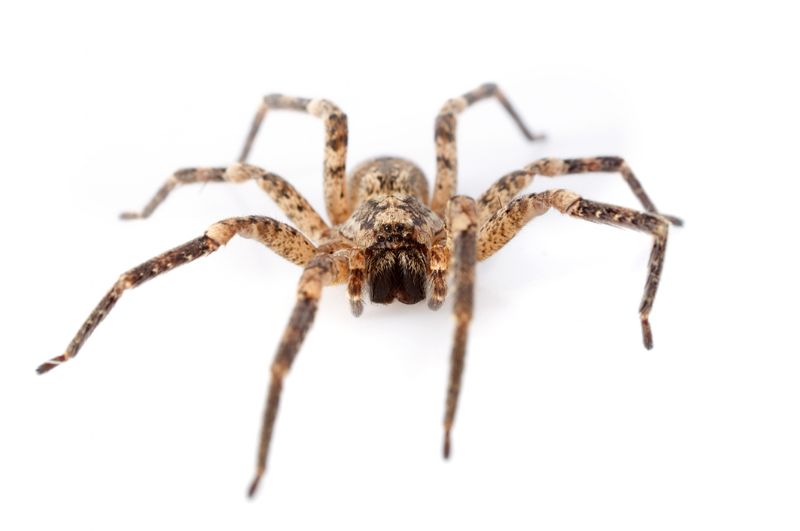- Home
- News, Articles & Reviews
We are hiring! Please click here to join our growing magazine delivery team in Gloucestershire!
Areas
Pets & Wildlife
Archive

Secretive spiders
All Areas > Pets & Wildlife > Wildlife Matters
Author: Maxine Raggatt, Posted: Thursday, 26th September 2019, 09:00
Some people don’t mind them, and some people hate them, but regardless of our feelings; spiders are everywhere. They can be tucked away in the corner of a shed or scurrying out from underneath the sofa.
Most of the time we don’t realise they are there, as these arachnids don’t like to be bothered. Spiders are, in fact, useful to our ecosystem as they control the population of insects by eating bloodsucking and crop-destroying pests.
Spiders spin their webs in our gardens all year round. During the end of summer into autumn, you will see many fully-grown common species. There are over 650 species of spider in the UK, most of which go unseen. Many of these species tend to live out in nature rather than in and around houses.
Best to leave them alone
The biggest spider in the UK is the cardinal spider, which can grow up to 14cm. You may also see giant house spiders, cellar, tube web, lace web and cupboard spiders hiding in your home or shed. It is best to leave spiders alone to take shelter through the colder months. If you really cannot stand to let them stay in your house, then use a glass and paper to move them outside and pop them in with some greenery, rather than squashing them.
Silky webs
Spiders have silk glands which produce a watery gel of long protein chains to make their webs. Depending on the species they can have 2-8 spinnerets, which provide different types of silk from super sticky to extra fine.
The shy false widow
The false widow spider is now widespread throughout England. They usually prefer to live indoors in places such as sheds and outhouses. These widows will often hide away in a hole by their web during the day and only come out at night, usually staying close to their web.
The females are considerably bigger than the males and live up to three years, whereas the males often live for only one.
False widows don’t move particularly fast; neither are they aggressive unless threatened. If a false widow bit you, it is similar to that of a wasp sting. This will usually result in pain and stinging but will tend to subside after a while.
They are generally nothing to worry about, and it is advised to wash the area with soap and water and apply antiseptic cream. In rare cases, they can result in an allergic reaction or bacterial infection, which can happen with any bite. When in doubt, seek medical attention.Other Images
Copyright © 2026 The Local Answer Limited.
Unauthorized use and/or duplication of this material without express and written permission from this site's author and/or owner is strictly prohibited. Excerpts and links may be used, provided that full and clear credit is given to The Local Answer Limited and thelocalanswer.co.uk with appropriate and specific direction to the original content.More articles you may be interested in...


© 2026 The Local Answer Limited - Registered in England and Wales - Company No. 06929408
Unit H, Churchill Industrial Estate, Churchill Road, Leckhampton, Cheltenham, GL53 7EG - VAT Registration No. 975613000You are leaving the TLA website...
You are now leaving the TLA website and are going to a website that is not operated by us. The Local Answer are not responsible for the content or availability of linked sites, and cannot accept liability if the linked site has been compromised and contains unsuitable images or other content. If you wish to proceed, please click the "Continue" button below:




